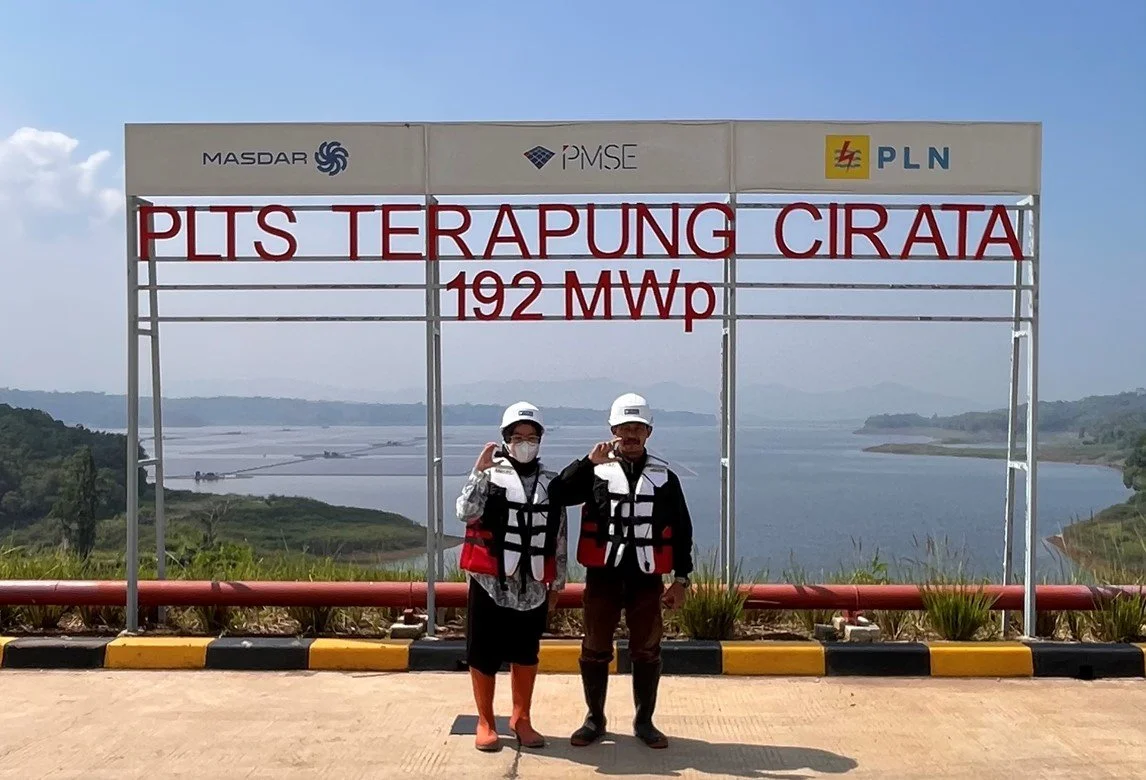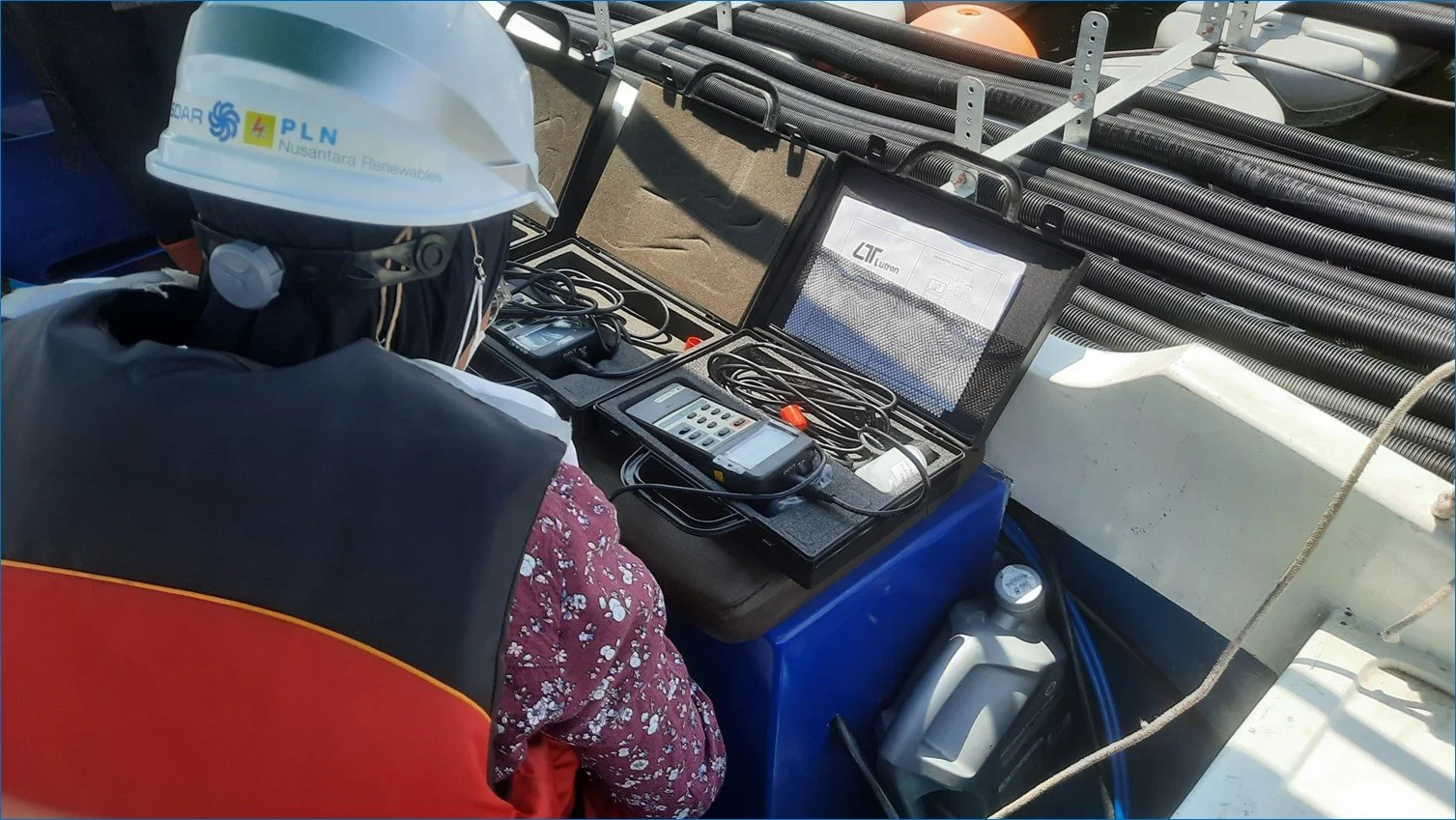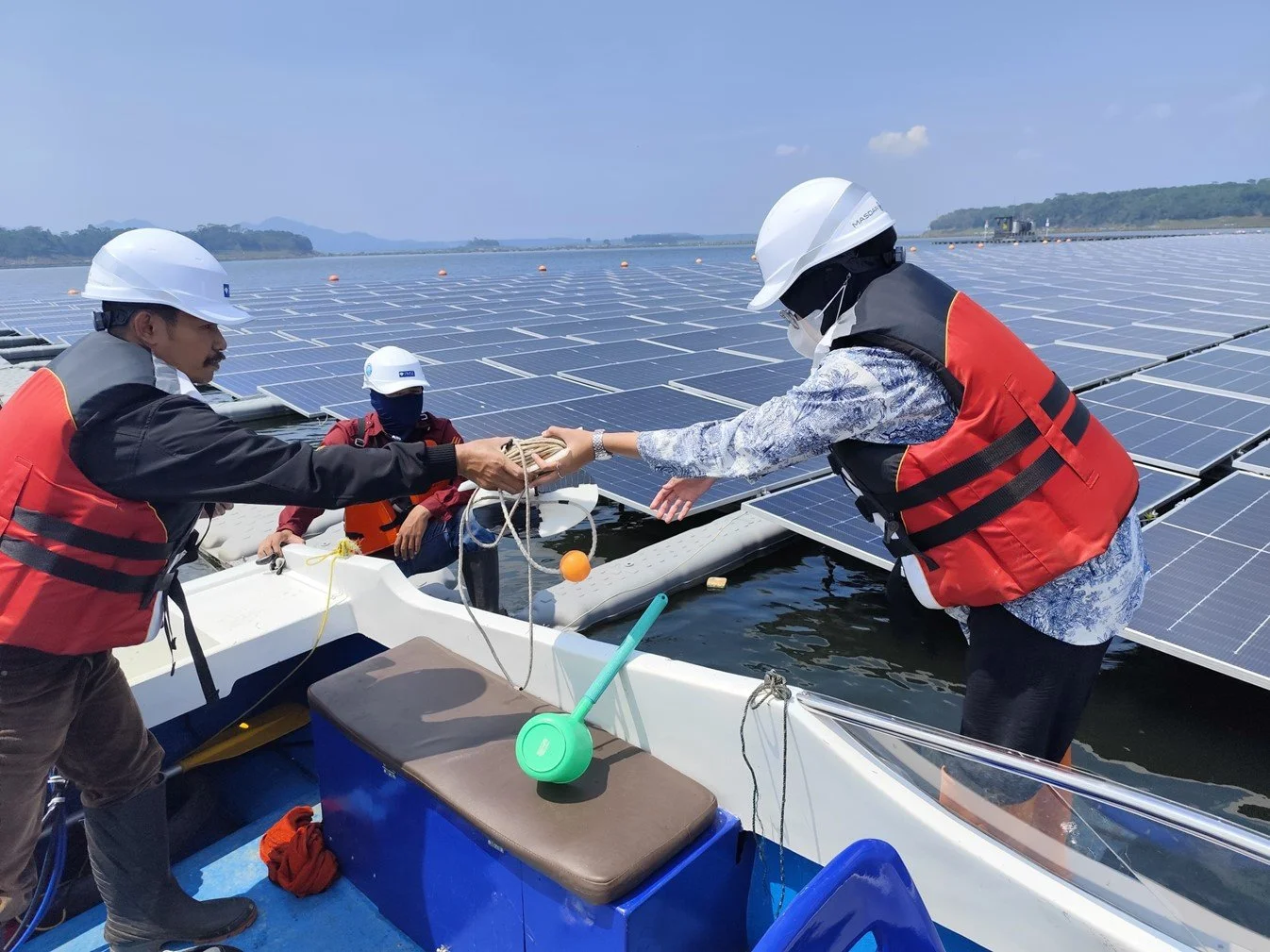Uncovering the Impact of Cirata's Floating Solar Power Plant: Research by Unpad Fisheries Student
Nabila Tia Sukmaya, or who is familiarly called Nabila, is a student of the Padjadjaran University Fisheries Study Program who is now in the final stage of her study journey. With a focus on Fisheries Resources (SDP), Nabila explores various aspects of inland water management, conservation, and capture fisheries. She also explored topics such as Environmental Impact Assessment (EIA), water productivity, and digitalization of water area maps.
To complete her studies, Nabila chose an interesting research topic: The Impact of Floating Solar Panels on Phytoplankton Community Structure and Water Quality in Cirata Reservoir, West Java. The inspiration came because Cirata Floating Solar Power Plant is one of the largest floating solar power plants in Indonesia.
“This solar power plant is interesting because it is placed on the surface of the water, something unique and rarely found,” said Nabila.
She has read various international journals showing that floating solar power plants can have both positive and negative impacts on aquatic ecosystems. This research is Nabila's first step to understand more about the impacts, as well as to make a real contribution to the management of water resources in Indonesia.
Although the procedure for applying for research at Cirata Floating Solar Power Plant is clear, Nabila faced challenges in terms of time. “The process is quite long. Sometimes you have to wait up to a month to get a response from the next contact person,” she said. However, she finds it helpful that the directions from the management are always clear and structured.
The visit to Cirata Floating Solar Power Plant provided many new experiences for Nabila. She was particularly impressed by the strict implementation of Standard Operating Procedures (SOPs), especially regarding occupational safety and health (K3). “We were given a briefing on OHS, complete with the use of Personal Protective Equipment (PPE), which added to my insight into the importance of safety in the work area,” said Nabila.
Not only that, the staff of PT Pembangkitan Jawa Bali Masdar Solar Energi (PMSE) as the manager of Cirata Floating Solar Power Plant was very helpful during her research. Starting from the provision of PPE, water transportation, to the friendliness shown by every employee, Nabila felt well received.
Not without obstacles, Nabila said that her biggest challenge during the water sampling process was the weather. “In the last data collection, we couldn't even use the boat from the PLTS area and had to enter through the outer route,” she said.
Of the various experiences, the most memorable moment for Nabila was when she had the opportunity to see floating solar panels firsthand and use full PPE for the first time. “It was amazing to see this technology first-hand while learning about its application,” she says excitedly.
Nabila in the solar power plant area wearing full PPE
Nabila's research is proof that renewable energy innovations such as floating solar panels not only impact the energy sector, but also open up cross-disciplinary research opportunities. With her passion and perseverance, Nabila hopes that the results of her research can make a real contribution to water management and sustainable energy development in Indonesia.



